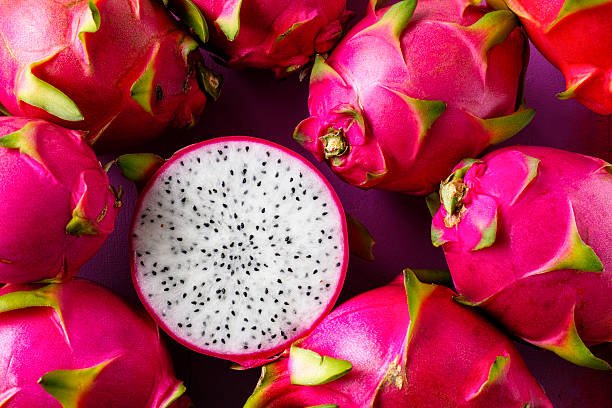Dragon Fruit Allergy Symptoms and Prevention

Despite the wide list of benefits of dragon fruit, it is worth paying attention to the contraindications to the use of this product. Dragon Fruit allergies are a very common group of allergies today. The incredible variety of fruits on supermarket shelves causes an incredible number of allergic reactions. Let’s look at the concept of fruit allergies so that you can identify them in time! So, see below Dragon fruit allergy symptoms.
Causes of Dragon Fruit Allergies:
Dragon Fruit allergies occur when a person’s immune system reacts inappropriately to proteins in food. The first stage of the process is called sensitization – when the “memory” of the immune system registers the food as a possible threat. Antibodies to this food are produced, and upon subsequent exposure, these antibodies can bind to the food proteins and cause the release of certain substances in the body, such as histamine. This leads to an allergic reaction.
Dragon Fruit Allergy Symptoms:
Firstly, there is individual intolerance. When trying dragon fruit for the first time, first try a small piece and wait half an hour. If there are no hives, vomiting, or swelling, feel free to finish eating.
Symptoms for all types of fruit allergies typically include:
- Redness, mild swelling, or itching of the lips, tongue, inside the mouth, soft palate, and ears;
- Itching in the throat;
- Esophagus or stomach symptoms: pain, vomiting, nausea;
- Sneezing, runny nose, nasal congestion.
Important to remember! Sometimes more severe symptoms such as difficulty swallowing and breathing), known as anaphylaxis, can occur. In such cases, emergency medical attention is needed!
Treatment for Dragon Fruit Allergies:
During pregnancy, it is not prohibited to eat dragon fruit, but during the period of breastfeeding, it is better to refuse dragon fruit, as it can cause an allergy in the child. It is better not to offer pitahaya, like many other exotic fruits, to children under three years old.
- The best treatment for fruit allergies is to follow a strict diet. For example, if you are allergic to apples, you should exclude this fruit from your diet in any form.
- It is important to remember! Learn to read the labels of the foods you plan to eat carefully. Fruits can be an ingredient in a huge number of foods.
- If you are allergic to a particular fruit, it does not necessarily mean that you will react to any other fruit. However, allergists advise avoiding other highly allergenic fruits and vegetables in your diet.
- Medication is also very important to relieve the symptoms of fruit allergies. Your allergist should develop a medication plan for you.
